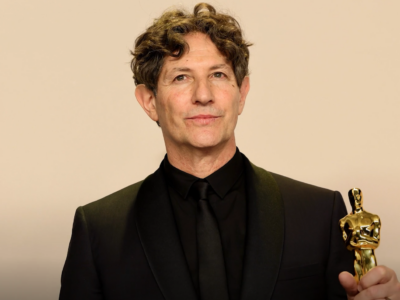On Jul 19, Essence, America’s premiere black women’s magazine (a Time Inc. publication) and a media institution, announced that it has named Ellianna Placas as its new Fashion Director. Placas is a renown fashion editor, she is also the first white woman to be hired at this position. In the post announcing the news, Alex Alvarez writes:
… She began her career in publishing styling cover shoots for 0: The Oprah Magazine … has also worked for Us Weekly, Real Simple, New York, More and Life & Style.
Upon hearing of the new hire, the community blogosphere went abuzz.
The Black Snob’s Danielle C. Belton writes in a blog post entitled “Essence Hires White Fashion Editor; Gets Raised Eyebrows, Tempers” that:
In a fashion industry where there is a lack of women of color, both as models and as people behind the scenes, some folks are not happy. They are not happy at all.
Belton also adds:
Online fashion and lifestyle site Clutch Magazine has one of the best articles about Placas being hired.
In the aforementioned article, Geneva S. Thomas conveys the disappointment of many black women and offers an explanation:
Cultural critic and writer Michaela Angela Davis, a former fashion editor for Essence, and a current writer for the print, tweeted: “It is with a heavy heavy heart I have learned that Essence magazine has engaged a white fashion director, this hurts, literally, spiritually.” …. Responses ranged from shock, disappointment to utter confusion. Michaela Angela Davis says her feelings on the news have much to do with Black women’s hostile history with the fashion industry.
Further explaining her concerns around the issue, Michaela wrote on Facebook: “It is personal and it’s also professional. If there were balance in the industry; if we didn’t have a history of being ignored and disrespected; if more mainstream fashion media included people of color before the ONE magazine dedicated to Black women ‘diversified’, it would feel different.”
Michaela also asks, “How many qualified Black fashion professionals did they [Essence] call?”

Screen Shot of Michaela Angela Davis and Roland Martin Discussing the Ellianna Placas Hire on CNN Anderson Cooper 360
Fashion media personality Najwa Moses has her own set of qualified Black women who should have received a call. “I can think of a few qualified Black women, and men too.” Najwa says … “I mean, how could such a prestigious title who is deeply rooted in its target audience let someone who is not even apart of the African Diaspora detonate our image?” Najwa questions, “How can a White woman dictate and decide what style and beauty is for the Black woman?”
The Editor-in-Chief of Essence magazine Angela Burt-Murray responded by writing the article: “ Essence: White editor won't diminish our love of black women“:
… the hot-button topic of race always has the ability to set people off and illustrate just how far we haven't come. It's something I see quite a bit in my own work. [..] Whether it's a profile on P. Diddy and longtime girlfriend Kim Porter discussing their controversial relationship (“You're promoting having children out of wedlock and a negative image of black couples!” wrote one disgruntled reader) or assigning a guest column to singer Jill Scott to voice her opinion about black men who date outside their race, “The Wince” (“Reverse racism!” was a common critique).
She pursues:
But interestingly enough, the things I think should most upset people and inspire boycotts and Facebook protests, often seem to go relatively unnoticed. Like when Essence conducted a three-part education series this year on the plight of black children falling through the cracks in under-performing schools. Crickets. When we reported on the increase in sex trafficking of young black girls in urban communities? Silence. When our writers investigated the inequities in the health care services black women receive? Deadly silence. When our editors highlighted data from the Closing the Gap Initiative report “Lifting as We Climb: Women of Color, Wealth and America's Future” that showed that the median net worth of single black women was $5? There went those darn crickets again. When we run pieces on how unemployment is devastating black men? Nada. When we run story after story on how HIV is the leading cause of death for black women age 18-34? Zilch. The things that really are the end of our world apparently aren't. [… ] And the way that I'm able to do that effectively is by valuing and listening to the direct and passionate dialogue I have with our 8.3 million readers and finding constructive ways that we can work together to continue to support and uplift black women. Thankfully, these sisters never steer me wrong!
At Black Voices, Claire Sulmers weighs in on the topic and posts a poll asking: “Is it wrong for Essence to hire a white fashion director?” Out of a total of 2,972 votes, 54% said “Yes, it's a black women’s magazine” and 46% “No, whoever is best for the job deserves it”.
in Special to CNN article, Sophia Nelson, editor-in-chief of Political Intersection blog writes that “Essence magazine offers lesson on race by putting ability over color”
I understand that passion, and to be honest, my initial reaction to the story was shock — until I really thought about it and realized that Essence was teaching us all something very important [..] Essence is setting a very positive example in the magazine industry and at one of the world's largest corporations, Time Warner, that talent not race matters.
Sadly, what seems to be lost in this debate over race, gender and victims of racism in America is that a human being named Elliana Placas … (who, by the way, is Australian). Her world view must be vastly different from the racial obsessions that we play out here in America on a grand scale at least once per year…
My sisters, I ask all of us to reconsider the Biblical command “Do unto others as you would have them do unto you.”
… The sisters at Essence have taught us all to put qualifications over comfort zones, vision over tradition, and character over color. Thank you Essence once again for leading the way.
in the Clutch Magazine article, many readers also opined on the issue. In a ‘post-racial’ world, some people believed that Michaela and Najwa’s point of views on the hiring are “reverse racism”. One reader states in the comment section:
What’s makes her not qualified? I hope that beauty can be found in every woman.
Joan Morgan, an award-winning journalist, author and long-time writer for Essence also adds:
This is about the fact that the publishing industry, particularly when it comes to mainstream women’s magazines remains just about as segregated in its hiring practices as it did in 1988.








1 comment
The question asked what Ellinna a white woman in a black magazine is of use can be answered by men like Tiger Woods. Black women need to have insight into why many (not all) Black men prefer white girls. Beside the fact of equal rights in the workplace.